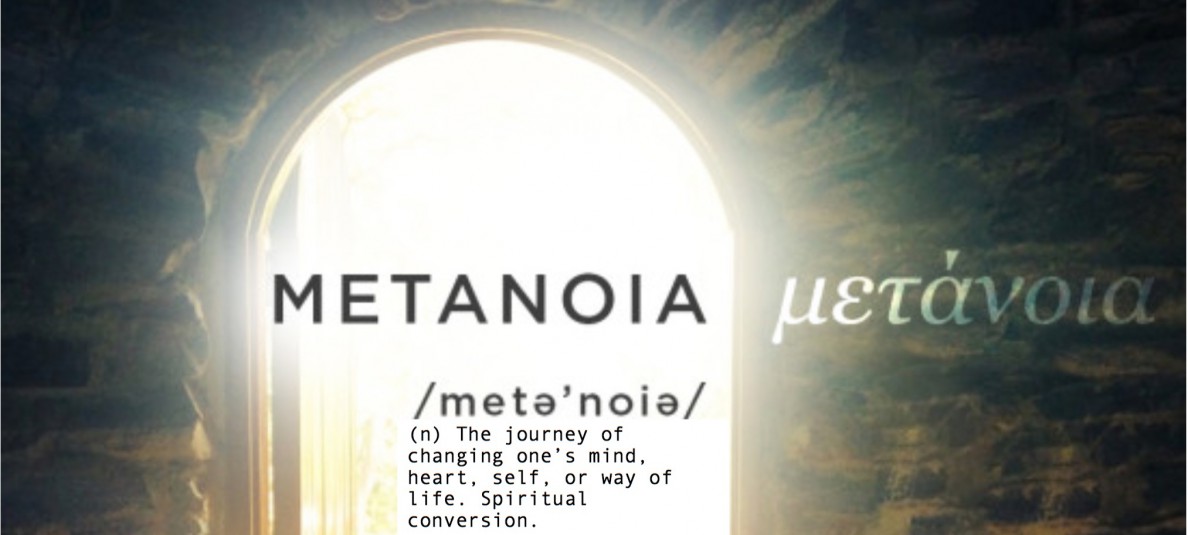Advent 3(A): The Arc of Justice
By: Kristen Leigh Mitchell
“Are you the one who is to come? Or are we to wait for another?”
It was a time of tension, uncertainty, and fear in Jerusalem. The people of Israel had been living under Herod’s cruel governance, and were struggling to maintain their Jewish identity and dignity under the occupation of the Roman Empire.
Along came a wild-eyed, rag-wearing, bug-eating homeless man named John, an itinerant preacher and former Essene who had become a prophet in his own right, calling the Israelites out of their occupied city of Jerusalem and down to the banks of the Jordan River, the place where their ancestors had first crossed over into the Promised Land. There, he immersed them in a baptism of repentance—a new initiation into their identity as the children of Israel.
John also baptized Jesus in this way, though he protested: “Don’t I need to be baptized by you?” John seemed to think Jesus was the one he described in Matthew 3:11-12 who would baptize “with the Holy Spirit and fire,” the one who had come to gather up the wheat from the threshing floor and burn the chaff in the fire. Since the prophet Malachi had foretold, “Behold I will send you Elijah the prophet before the great and terrible day of the Lord comes,” many of the Israelites were waiting for the one who would come to herald the end days of the Roman occupation and inaugurate a time of peace, prosperity, and liberation for the Jews. John had been preaching that “the Kingdom of Heaven was at hand,” and seemed to be convinced that Jesus was the one who had come to inaugurate it.
But then John found himself in prison for sedition after publicly criticizing Herod for cheating on his wife and sleeping with his sister-in-law. Perhaps at this point he was feeling a little less confident. Or perhaps he was just getting a bit impatient. He had heard about the things Jesus was doing. He knew that Jesus was still preaching the message that “the Kingdom of Heaven was at hand.” But when was the long-awaited revolution going to start? When would “the great and terrible day of the Lord” begin? When was he going to set the captives free?
I’m sure John was thinking that sooner rather than later would be great, given the circumstances.
Unfortunately, the story did not pan out the way that John and the other Israelites had hoped. The road was much harder than any of them could have imagined. In spite of the fact that Jesus designated John as “the Elijah who was to come,” implying that he himself was indeed the Messiah, by all earthly standards it would seem that they were wrong. John got beheaded, Jesus was crucified, the zealots lost their revolt against Rome, and the temple was destroyed. Those who believed that “the one who was to come” would be a triumphant and glorious king that would overthrow the existing regime and set things right through a new system of governance were in for a pretty disillusioning paradigm shift.
“What did you expect?” Jesus asked the crowds. “Someone dressed in soft robes? People who dress in soft robes are in royal palaces.”
If we measure triumph and success by the standards of the world—by the standards of empire—we will almost certainly miss Jesus’ meaning when he declares that the Kingdom of God is at hand. And we may find ourselves succumbing all too easily to despair whenever those who rise up into positions political power and domination threaten our identity, our safety, and our livelihood. Unfortunately, our faith in Jesus Christ never promised to save us from suffering in the face of this kind of evil. Looking at the saints and martyrs throughout history, we know that sometimes we are called right to the front lines of resistance, armed only with the promise that love does ultimately win, and that there will be life on the other side of the suffering, even if it is a life that we only get to experience beyond death.
But as Martin Luther King, Jr. pointed out in The Gospel Messenger in 1958,
Evil may so shape events that Caesar will occupy a palace and Christ a cross, but that same Christ arose and split history into A.D. and B.C., so that even the life of Caesar must be dated by his name. Yes, the arc of the moral universe is long, but it bends toward justice.
The Kingdom of God that Jesus describes is not spread through domination and the top-down tactics of political leaders, but through the slow transformation the world from the ground up, through acts of love and healing that spread across space and time like a yeast that eventually permeates the whole of humanity. When we lose our faith in this subtle revolution, and begin to doubt the efficacy of this kind of love in the face of the powers that be, it can be important to take stock in how far we have already come. Just as Jesus reminded John of the deeds that were being done—the blind see, the deaf hear, the lame walk, and the dead are raised—we must remember to tell our stories of hope and triumph in the midst of fear and despair. Though despots may rise, the inauguration of the Kingdom of God has begun. The arc is bending toward justice, and nothing can stop that now.

Kristen Leigh Mitchell is a freelance writer, theologian, and indie folk singer-songwriter with a Master of Divinity from Union Theological Seminary in New York City, where she focused her studies in theological aesthetics, theology of culture, Biblical interpretation, and ecumenical worship. She is currently living in Greensboro, North Carolina, where she offers workshops, performs music, practices archery, grows vegetables, roller skates, writes, and serves as Assistant to the Director of The Servant Leadership School at Holy Trinity Episcopal Church.
